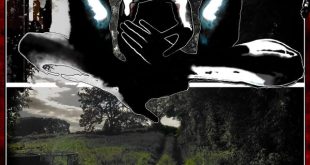I must have seen Billy Joel in concert sometime in the early eighties as he began the show with “You May Be Right” and, besides a frenetic performance of “Root Beer Rag,” that’s about all I remember.
When Billy Joel released Glass Houses in 1980, he was in the midst of a seemingly endless run of album and single releases. This album would only continue his overwhelming commercial success, selling 12 million copies in North America while producing four Top 40 singles. It would also be his second consecutive Number One album in the United States, remaining in that position for six weeks.
Glass Houses is probably Joel’s most rock oriented release. As such, he keeps the music fairly simple and wisely uses only the five musicians who comprise his stage band to create a tight, cohesive sound. An electric guitar shares equal billing with his keyboards on many of the tracks, which gives the music an edge not present on his previous albums.
The four hit singles come bunched together at the beginning of the album, forming one of the strongest strings of songs he'd ever produce. “You May Be Right” begins with the shattering of breaking glass, quickly blasting off into full-on rock ‘n’ roll as Joel's harder-edged vocals are supported by sax and guitars. “Sometimes A Fantasy” is about phone sex and yields yet another strong vocal performance. “Don’t Ask Me Why” is a bit lighter yet it remains one of his instantly recognizable songs, containing particularly interesting lyrics about not understanding life. And “It’s Only Rock and Roll To Me,” which became his first Number One single, was about his refusal to conform to the new music trends of the day and featured an odd but infectious beat that, over a quarter of a century later, is still memorable.
There were several other songs on this album that were almost as good as the first four. “All For Leyna,” a dark song about the obsession of a one night stand, is one of those tunes that just fascinates and stays with you. “Close To The Borderline” comes close to hard rock and, while not totally successful, it would prove to be one of his few forays in that direction and so remains an interesting artifact of the era. “Through The Night,” which closes the album, is a brilliantly constructed song that uses harmonies to good effect.
Today many people just listen to all different varieties of Billy Joel's greatest hits albums, which is a shame as releases like Glass Houses are creations that deserve individual attention. The songs contained here form a unit and are still a worthwhile listen today. Consider it another essential album in the continuing Billy Joel saga.
 Blogcritics The critical lens on today's culture & entertainment
Blogcritics The critical lens on today's culture & entertainment



